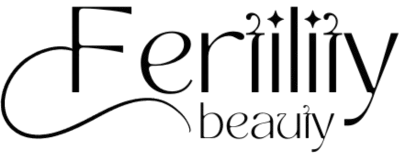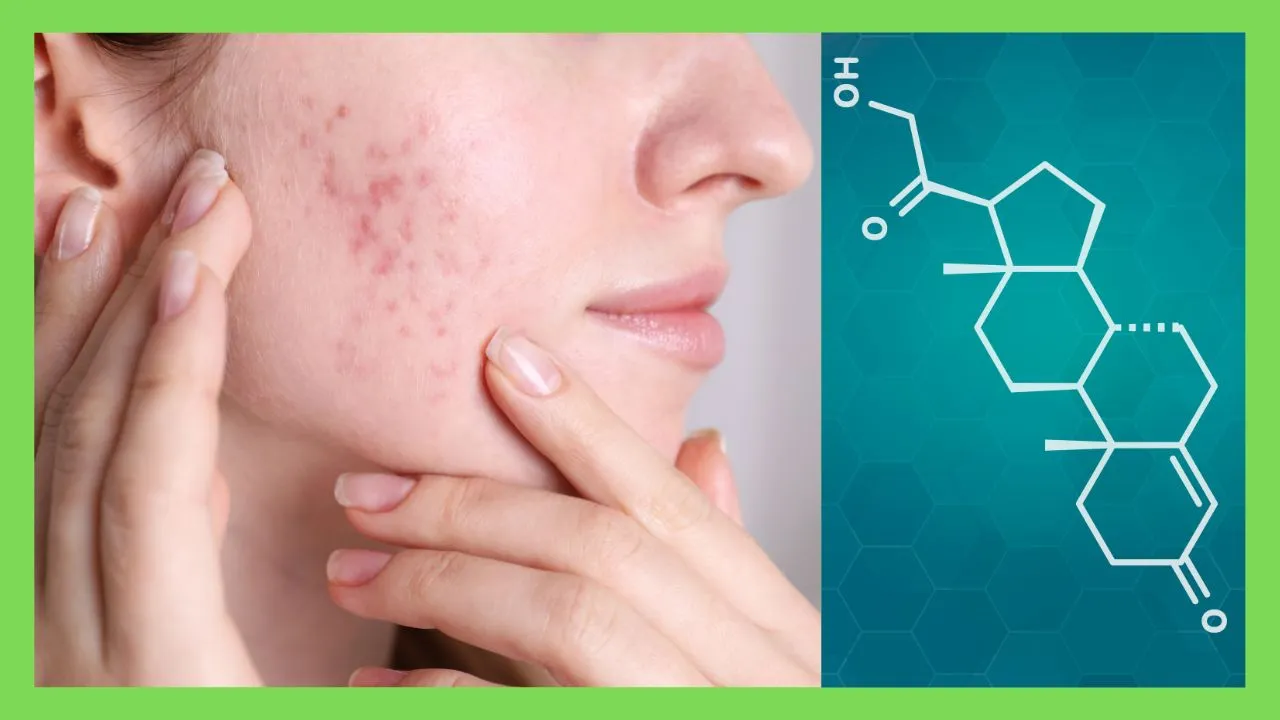Here’s an overview:
Understanding Hormonal Acne: Causes and Symptoms
Hormonal acne is a common skin condition influenced by fluctuations in hormone levels. Typically, it manifests during puberty, menstruation, pregnancy, and menopause. The following factors contribute to its development:
- Increased Androgens: Elevated hormone levels, such as testosterone, can enlarge sebaceous glands and increase oil production, leading to clogged pores.
- Stress: Stress can trigger the release of cortisol, which may exacerbate acne.
- Diet: Certain foods can spike insulin levels, affecting hormonal balance.
Common symptoms include:
- Cysts: Large, painful lumps beneath the skin.
- Papules: Red, raised bumps.
- Pustules: Pus-filled lesions.
- Nodules: Hard lumps beneath the skin’s surface.
How Diet Impacts Hormonal Balance and Acne
Diet plays a critical role in maintaining hormonal balance and managing acne. Consuming foods high in refined sugars and dairy products can elevate insulin levels and affect hormonal activity, leading to breakouts.
Influential Factors:
- Insulin Levels: High-glycemic foods spike insulin, which can increase sebum production.
- Dairy Intake: Hormones in dairy may influence androgen production, exacerbating acne.
- Inflammation: Processed foods can inflame skin and disrupt hormonal harmony.
Beneficial Nutrients:
- Omega-3 Fatty Acids: Found in fish and flaxseed, it reduces inflammation.
- Antioxidants: Fruits and vegetables help combat oxidative stress.
- Zinc: Present in nuts and seeds, it supports skin health and hormone regulation.
Top Foods Rich in Zinc to Combat Acne
Proper zinc intake is crucial for skin health, particularly in managing acne.
Oysters
Oysters contain the highest concentration of zinc.
Beef
Lean beef is another excellent source. One serving provides a significant portion of the daily recommended intake.
Pumpkin Seeds
Pumpkin seeds offer a plant-based option rich in zinc. They can be easily added to salads or consumed as a snack.
Chickpeas
Chickpeas are versatile and packed with zinc. They can be included in soups, salads, or hummus.
Spinach
Spinach is nutrient-dense and provides a moderate amount of zinc. It is best consumed raw or lightly cooked to retain its nutritional value.
Incorporating Omega-3 Fatty Acids for Clear Skin
Omega-3 fatty acids, found in fish and certain plant oils, play a vital role in maintaining clear skin. These essential fats help reduce inflammation, a common trigger for hormonal acne.
Key Sources of Omega-3:
- Fatty Fish
- Salmon: Rich in EPA and DHA, crucial for reducing skin inflammation.
- Mackerel: Supports healthy, inflamed-free skin.
- Sardines: Packed with essential fatty acids.
- Plant-Based Oils
- Flaxseed Oil: Contains alpha-linolenic acid (ALA), which reduces acne.
- Chia Seeds: Offers a high concentration of ALA.
- Supplements
- Fish Oil Capsules: Ensure adequate daily intake.
- Algal Oil: A plant-based alternative providing DHA.
Incorporating these Omega-3 rich foods into one’s diet can promote clearer, healthier skin, reducing the severity of hormonal acne in individuals during their 20s and 30s.
Probiotics and Gut Health in Acne Management
The relationship between gut health and skin condition is increasingly recognized in scientific literature. Probiotics are live bacteria that provide numerous health benefits when consumed. These benefits extend to the management of hormonal acne by:
- Balancing Gut Microbiota: Probiotics help maintain a healthy balance of gut bacteria, which is crucial for reducing inflammation and preventing acne flare-ups.
- Enhancing Nutrient Absorption: Improved gut health promotes better absorption of nutrients vital for skin health, such as Vitamin D, Zinc, and Omega-3 fatty acids.
- Reducing Inflammation: Probiotics help decrease systemic inflammation, which is often linked to acne development.
Sources of probiotics include yogurt, kefir, sauerkraut, and kombucha.
Antioxidant-Packed Foods for Skin Health
Antioxidants help combat inflammation and protect skin cells from damage caused by free radicals. Incorporating foods rich in antioxidants can enhance skin health and potentially alleviate hormonal acne. Key antioxidant-packed foods include:
- Berries: Blueberries, strawberries, and raspberries are high in vitamin C and flavonoids.
- Dark, leafy greens: Spinach, kale, and Swiss chard contain vitamin A, C, and E.
- Nuts and seeds: Almonds, walnuts, and sunflower seeds offer vitamin E and selenium.
- Green tea: Rich in polyphenols, green tea can reduce acne-related inflammation.
- Dark chocolate: Contains flavonoids that promote blood flow and toxin removal.
The Role of Vitamin A in Reducing Acne
Vitamin A plays a crucial role in reducing acne by regulating skin cell production and turnover. It helps in keeping pores clear of dead skin cells, which can accumulate and lead to acne. Additionally, it has anti-inflammatory properties that can reduce redness and swelling associated with acne.
Benefits of Vitamin A for Acne:
- Regulates sebaceous glands: Reduces excess oil production that can clog pores.
- Promotes cell turnover: Prevents the build-up of dead skin cells.
- Anti-inflammatory: Decreases redness and swelling.
Good food sources include:
- Carrots
- Sweet potatoes
- Spinach
- Kale
Proper consumption can significantly aid in managing hormonal acne.
How Fiber-Rich Foods Help Regulate Hormones
Dietary fiber influences hormone balance significantly. Soluble fiber slows digestion, moderating blood sugar and insulin levels. This can prevent insulin spikes that trigger excess androgen production. Insoluble fiber aids in removing waste and surplus hormones by promoting efficient bowel movements.
Benefits of Fiber-Rich Foods:
- Stabilizes blood sugar
- Reduces insulin resistance
- Enhances estrogen metabolism
Recommended Fiber-Rich Foods:
- Whole grains: Oats, quinoa, brown rice
- Fruits: Apples, pears, berries
- Vegetables: Broccoli, Brussels sprouts, carrots
- Legumes: Lentils, chickpeas, black beans
Higher fiber intake supports hormonal equilibrium, mitigating symptoms of hormonal acne.
Balancing Blood Sugar Levels with Low-Glycemic Foods
Regulating blood sugar levels is crucial for managing hormonal acne. Low-glycemic foods prevent sharp insulin spikes and promote stable blood sugar levels. These foods often include complex carbohydrates and fiber-rich options.
Recommended Low-Glycemic Foods:
- Whole Grains
- Quinoa
- Brown rice
- Barley
- Non-Starchy Vegetables
- Spinach
- Broccoli
- Kale
- Legumes and Beans
- Lentils
- Chickpeas
- Black beans
- Fruits
- Berries
- Apples
- Pears
Additional Tips:
- Combine protein with carbohydrates to slow sugar absorption.
- Avoid sugary snacks and beverages.
- Opt for whole, unprocessed foods.
Hydration and Its Importance for Acne Prevention
Proper hydration plays a pivotal role in maintaining healthy skin and preventing hormonal acne. When the skin is well-hydrated, it retains elasticity and enhances its natural barrier functions, preventing excess oil production and clogged pores. Adequate water intake helps flush out toxins, reducing the likelihood of inflammation and breakouts.
Key Benefits of Hydration for Acne Prevention:
- Balancing Skin Oil Production: Prevents overcompensation by sebaceous glands.
- Detoxification: Aids in the elimination of toxins.
- Skin Cell Regeneration: Improves the skin’s healing process.
- Inflammation Reduction: Decreases the likelihood of acne flare-ups.
Regular hydration is essential for overall skin health and acne management.
Foods to Avoid: Triggering Hormonal Imbalances
Certain foods that can exacerbate hormonal imbalances should be avoided:
- Dairy Products: Milk, cheese, and yogurt often contain hormones and may cause inflammation, leading to acne.
- Sugar and Refined Carbs: Foods high in sugar or refined carbs such as white bread, pasta, and pastries can spike insulin levels, worsening acne.
- Caffeine: Excessive caffeine intake from coffee or energy drinks can increase stress hormones, aggravating hormonal acne.
- Processed Foods: Packaged snacks and fast food often contain unhealthy fats and additives that can disrupt hormonal balance.
- Soy Products: Soy contains phytoestrogens which might interfere with natural hormone levels, potentially triggering acne.
Lifestyle Tips and Dietary Changes for Long-Term Clear Skin
Adopting a healthy lifestyle is crucial for maintaining clear skin.
Diet
- Balanced Meals: Include lean proteins, whole grains, and plenty of fruits and vegetables.
- Hydration: Drink at least 8 glasses of water daily to flush out toxins.
- Limit Sugar: Reduce intake of sugary foods and beverages to prevent inflammation.
- Healthy Fats: Incorporate omega-3 fatty acids found in fish, flaxseeds, and walnuts.
Lifestyle
- Regular Exercise: Engage in physical activities to improve circulation and reduce stress.
- Sleep: Aim for 7-9 hours of quality sleep per night.
- Stress Management: Practice yoga, mindfulness, or meditation to keep stress levels in check.
- Skin Care: Use gentle, non-comedogenic products, and never skip sunscreen.

